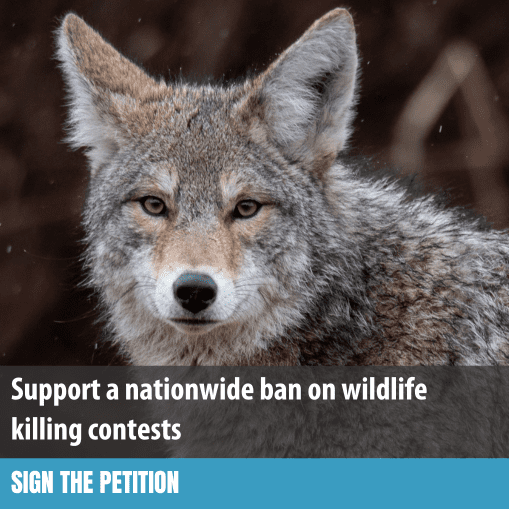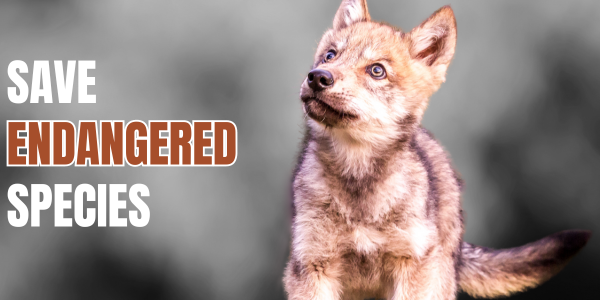Photo Credit: Rebecca Richardson, Wikimedia Commons
Wildlife killing contests – violent, inhumane, and indefensible
Ban Wildlife Killing Contests
 Wildlife killing contests are organized events in which participants slaughter animals in a certain area over a certain time period. Prizes are often given for killing the most animals, the largest animal, and even the smallest or youngest animal. Many of these contests are well-publicized and sponsored. Coyotes are the most common target, but bobcats, foxes, badgers, skunks, prairie dogs, rabbits, snakes, and wolves are also targeted. In 2018, Vermont became the first state to pass legislation banning this brutal bloodsport. Other states have banned or restricted killing contests, including New Mexico, Arizona, Massachusetts, California, Colorado, Washington, and Maryland, and there is a nation-wide movement to ban these activities elsewhere.Native wildlife targeted in killing contests play key roles in healthy, functioning ecosystems. Killing contests devalue native wildlife and glorify wasteful violence, while disrupting natural processes. They give ethical hunters a bad name and serve no legitimate management purpose. Moreover, they can actually exacerbate livestock depredation and human-wildlife conflict; peer-reviewed studies on cougars, coyotes, and wolves demonstrate this.We’re working hard to end this senseless violence, restore respect for native wildlife, and engender an ethic of coexistence throughout the American West.
Wildlife killing contests are organized events in which participants slaughter animals in a certain area over a certain time period. Prizes are often given for killing the most animals, the largest animal, and even the smallest or youngest animal. Many of these contests are well-publicized and sponsored. Coyotes are the most common target, but bobcats, foxes, badgers, skunks, prairie dogs, rabbits, snakes, and wolves are also targeted. In 2018, Vermont became the first state to pass legislation banning this brutal bloodsport. Other states have banned or restricted killing contests, including New Mexico, Arizona, Massachusetts, California, Colorado, Washington, and Maryland, and there is a nation-wide movement to ban these activities elsewhere.Native wildlife targeted in killing contests play key roles in healthy, functioning ecosystems. Killing contests devalue native wildlife and glorify wasteful violence, while disrupting natural processes. They give ethical hunters a bad name and serve no legitimate management purpose. Moreover, they can actually exacerbate livestock depredation and human-wildlife conflict; peer-reviewed studies on cougars, coyotes, and wolves demonstrate this.We’re working hard to end this senseless violence, restore respect for native wildlife, and engender an ethic of coexistence throughout the American West.
